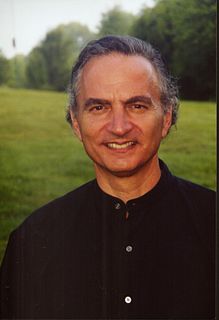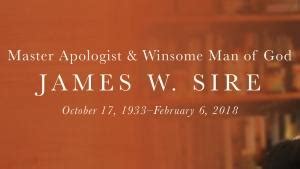A Quote by Phil Harding
When politicians & economists understand we live in a finite world & act accordingly then a better future has a chance
Quote Topics
Related Quotes
If to enjoy even an enjoyable present we must have the assurance of a happy future, we are “crying for the moon.” We have no such assurance. The best predictions are still matters of probability rather than certainty, and to the best of our knowledge every one of us is going to suffer and die. If, then, we cannot live happily without an assured future, we are certainly not adapted to living in a finite world where, despite the best plans, accidents will happen, and where death comes at the end.
Optimism is a strategy for making a better future. Because unless you believe that the future can be better, it’s unlikely you will step up and take responsibility for making it so. If you assume that there’s no hope, you guarantee that there will be no hope. If you assume that there is an instinct for freedom, there are opportunities to change things, there’s a chance you may contribute to making a better world. The choice is yours.
Don't overlook the significance of your smallest opportunities for civilized behavior throughout each day. The future has no bigger moments than we experience right now. The world changes for the better with every act of kindness, and for the worse with every act of cruelty. The future is nothing grander than the very next moment, and it arrives solely from the present.
The real does not die, the unreal never lived. Set your mind right and all will be right. When you know that the world is one, that humanity is one, you will act accordingly. But first of all you must attend to the way you feel, think and live. Unless there is order in yourself, there can be no order in the world.
A case can certainly be made that Christians bear a major responsibility for our ecological crisis. But the fault is not their biblical but their unbiblical view of nature. Christians have long failed to understand what the Bible really teaches concerning nature and our responsibility for it. For this there is no excuse. Repentance must be our first response. Our second response must then be to right the wrongs of our faulty understanding and act accordingly. We are all responsible to know what can be known of God's will for nature, and we are then responsible to act on that knowledge.
It is only all too easy to understand the requirements contained in God's Word ('Give all your goods to the poor.' 'If anyone strikes you on the right cheek, turn the left.' 'If anyone takes your coat, let him have your cloak also. Rejoice always.' 'Count it sheer joy when you meet various temptations' etc.). The most ignorant, poor creature cannot honestly deny being able to understand God's requirements. But it is tough on the flesh to will to understand it and to then act accordingly. It is not a question of interpretation, but action.































